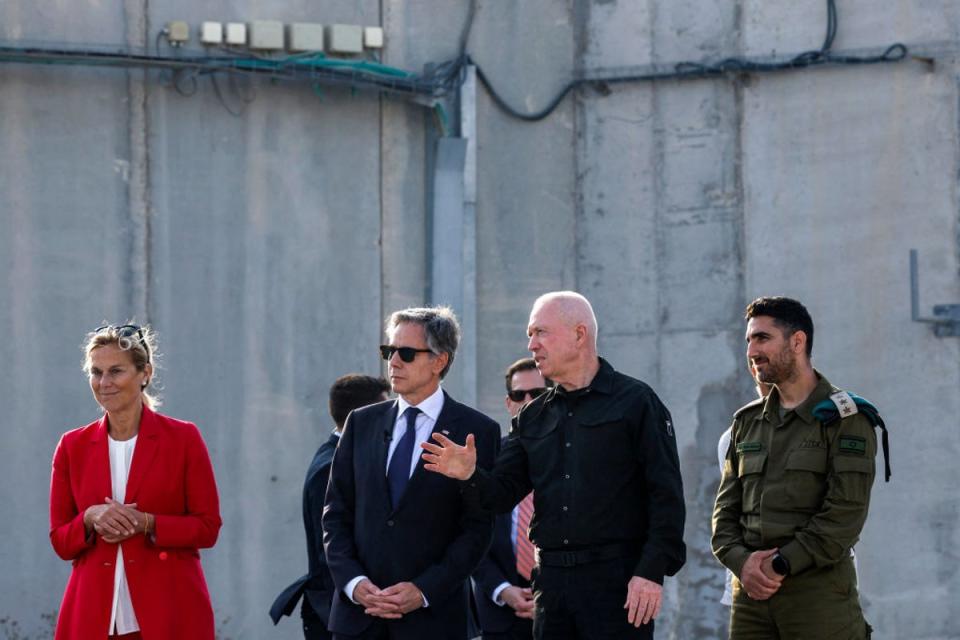US officials deny knowledge of plan to transfer control of Rafah crossing to private American security firm
US officials have played down their knowledge of Israel’s plans for military operations in Rafah, the last haven in Gaza for refugees fleeing the Israeli military siege which has devastated the northern part of the territory.
For weeks, the Biden administration has publicly warned Israel’s government against a sustained military assault on Rafah, which it argues cannot be undertaken without posing an existential threat to the more than one million refugees and residents of Rafah now sheltering in the area to avoid the violence.
Israeli officials had long indicated they planned to ignore those warnings and push ahead with an attack.
That attack came this week, with Israeli tanks entering Rafah early Tuesday morning. US officials who spoke to reporters appeared to be holding on to hope that it was not the beginning of a sustained operation, though they offered no statements from Israeli commanders to support the view.
“What we've been told by our Israeli counterparts is that this operation last night was limited and designed to cut off Hamas’ ability to smuggle weapons and funds into Gaza,” National Security Council spokesman John Kirby said at a press conference. He had, just one day earlier, admonished a reporter for asking about the scope of the attack: “There hasn't been an assault or an attack in terms of a ground operation at this time, so let's not get ahead of where we are.”
Israel’s defence minister, Yoav Gallant, poured cold water on those optimistic assurances from US officials on Tuesday as he toured parts of Rafah: “This operation will continue until we eliminate Hamas in the Rafah area and the entire Gaza Strip or until the first hostage returns.”
“We are willing to make compromises in order to bring back hostages, but if that option is removed, we will go on,” he said.

At the State Department, spokesman Matthew Miller reiterated that the US did not believe a full-scale assault on Rafah was underway as Axios reported that White House officials were indicating that the US president, Joe Biden, did not see the attack as a violation of his “red line”.
“It is not our assessment that a major military operation has begun,” State Department spokesman Matthew Miller added at his own press briefing.
He did confirm, however, that the Israeli assault was intended with the goal of dismantling Hamas’s control of the Gaza side of the Rafah crossing, currently a main passageway for humanitarian aid including food to Gaza where experts including Cindy McCain, head of the UN’s World Food Programme, says a famine could be imminent.
“Israel's occupation of the Rafah border crossing has a legitimate goal of preventing Hamas from taking control of the crossing,” said Miller.
Meanwhile, one of Israel’s largest newspapers has reported that the end goal of the Rafah operation includes putting an American security firm in charge of the Gaza side of the crossing. Doing so would inextricably deepen US involvement in the conflict, while simultaneously freeing the Biden administration from direct responsibility.
Mr Kirby, questioned by reporters sat his briefing on Tuesday, denied knowledge of this: “I know nothing about your [question].” Miller too denied knowing about those reported plans.
The death toll in Gaza is thought to be pushing 40,000 as reports from inside the territory have become increasingly sparse.
A Politico report on Tuesday separately indicated that a report investigating allegations of Israeli war crimes in Gaza, which the administration is due to present to Congress, is indefinitely delayed.


